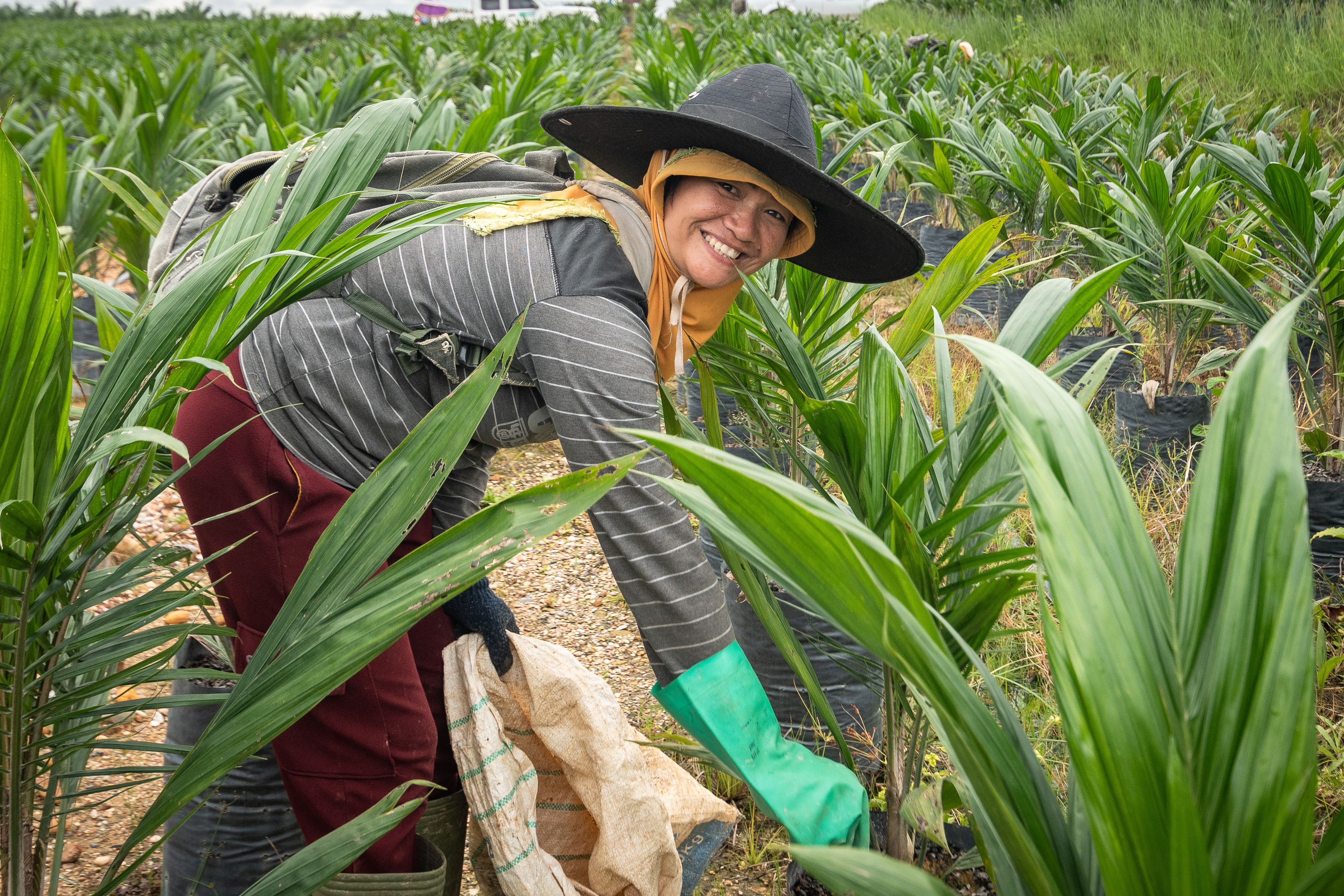Workers' rights in rural sectors
Improving Workers’ Rights in Rural Sectors of Indonesia with a focus on Women
The project, funded by the US Department of Labour (USDOL), aims to promote labour laws compliance, occupational safety and health and gender equality in the Indo-Pacific.
Objectives
The Project Improved workers’ rights in rural sectors of the Indo-Pacific with a focus on women seeks to promote and improve labour law compliance, occupational safety and health (OSH) and gender equality in selected rural sectors in the Philippines and Indonesia. The aim is to contribute to enhancing working conditions, especially for women workers. In Indonesia, the focus is on the palm oil and fish processing industries.The project is implemented as part of Safety + Health for All — the ILO Flagship Programme aimed at improving the safety and health of workers worldwide — and will benefit from the tools, strategies and good practices identified in the context of the global initiative. The interventions are carried out in partnership with governments, workers and employers’ organizations in Indonesia.

Project outcomes
The Project works closely with regional and country-level partners to achieve the following target outcomes:Long term outcomes
- Improved national frameworks for compliance with labour laws, gender equality and occupational safety and health (OSH) in rural sectors.
- Enhanced enabling environment for the promotion of and compliance with labour laws, gender equality and OSH in rural sectors' pilot enterprises and communities
Medium term outcomes
- Improved national and regional tripartite mechanisms of governments, workers’ and employers’ organizations in mainstreaming gender and sector-specific labour issues in industry tripartite councils and OSH in line with ILO Convention No 187.
- Enhanced and improved gender responsiveness in the government’s monitoring, enforcement and remediation of labour and OSH issues.
- Imrpoved mechanisms and structures that promote compliance with labour laws, gender, and OSH in the supply chain of rural sectors, pilot enterprises and their communities.
Short term outcomes
- Enhanced gender-responsiveness of national and regional level tripartite systems for developing and promoting labour laws in target sectors
- Promotional framework of industry tripartite partners for safety and health at work developed in the target sectors
- Improved inspection policy and processes on sector-specific labour laws, OSH and gender issues
- Improved capacity of employers’ and workers’ organizations to promote compliance with gender, labour laws, and OSH in the supply chain of target sectors
- Community level mechanisms on addressing gender equality, labour laws and OSH in pilot communities are established and operational
- Gender-responsive mechanisms on labour laws compliance and OSH are implemented at the workplace level.

Key Activities
Major project activities include but are not limited to:- sectoral assessment and gender supply chain mapping;
- capacity building and competency-based programmes;
- development of sector specific information, education and communication (IEC) materials; establishing and enhancing online systems;
- localization and mainstreaming of gender, labour laws and standards, and OSH;
- fostering social dialogue.
Project partners
The Project is working with governments, workers' and employers’ organizations in both countries, which would include, but will not be limited to the following partners:- Ministry of Manpower (MoM);
- Indonesian Employers Association (APINDO);
- All Indonesian Trade Union Confederations; and
- other Indonesian Ministries and Government units, sectoral business associations, and sectoral workers’ groups.
Funding is provided by the United States Department of Labor under cooperative agreement number IL‐35632-75-K. 100 per cent of the total costs of the project are financed with federal funds, for a total of 5 million dollars. This material does not necessarily reflect the views or policies of the United States Department of Labor, nor does mention of trade names, commercial products, or organizations imply endorsement by the United States Government.